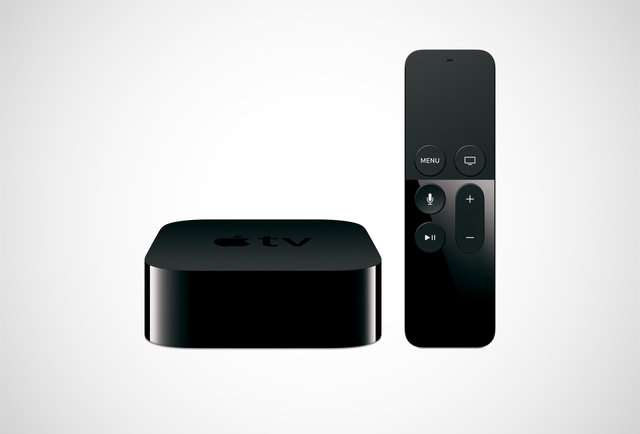Review: Don't expect Apple to transform television

Since the turn of the century, Apple has shaken up both the music and wireless industries. But if you're hoping it will have the same revolutionary effect on the television industry, you may want to adjust your expectations.
It's been an open secret for years now that Apple has been working on a television service, one that could rival what you get from Comcast or DirecTV. The hope has been that Apple could deliver a service that would be easy to use, affordable - and much better than what you can get through your cable box.
But that hope has been put on hold - again. Les Moonves, CEO of CBS, whose networks would likely be a critical part of any Apple television package, said last week that the company has pushed the pause button. That's something the company has reportedly done repeatedly since it first set its sites on the TV industry nearly a decade ago.
What the company is almost certainly finding is that the television business is a lot different from music or phones and much tougher to disrupt. Content owners such as CBS are the ones who hold most of the money and power in the industry. They're not only reluctant to see their business model change, they have little incentive so far to allow that to happen.
"This is a very tough, tough space," said Derek Baine, a research director with SNL Kagan, an industry research firm.
On the surface, the television industry looks like one that would be ripe for a revolution. Pay TV operators are generally unloved. Their customer service is often atrocious. Many of the set-top boxes used to tune in to pay TV channels are difficult to use. And many consumers are frustrated not only with how much they're paying for their service, but that their prices just keep going up.
Consumers are seeking alternatives. Americans are spending more and more of their TV watching time viewing video streamed over the Internet, particularly from Netflix, and less time with traditional pay TV service. The proportion of consumers who subscribe to traditional pay TV services has started to decline. The proportion of households that don't have pay TV is now 1 in 6 and growing.
Of all the potential contenders, Apple would seem to be among the most likely to revolutionize the video industry. It's already a huge player in the entertainment industry and transformed the music business with the iPod and iTunes Music Store. It's been involved in the video business since it started selling music videos and television episodes through iTunes in 2010, and it has the ability to distribute video to tens of millions of consumers through iPhones, iPads and Apple TV devices.
But the video business isn't the music industry. Hollywood isn't in anything close to the free fall the music industry found itself in at the turn of the century. Pay TV subscriptions are down only marginally, many older homeowners appear wedded to their pay TV packages and many people who don't have a pay TV subscription now likely will sign up for one eventually. In other words, the video industry isn't desperate. Instead, it's eager to maintain its currently lucrative business model for as long as it can.
Thus far, there's not been a good model for a substitute for traditional pay TV services. To gain access to the same breadth of content you can get through a cable box and bundle, consumers often have to cobble together a complex collection of apps, services and gadgets.
In the last year, Dish and Sony have come out with Internet-distributed services that look more like the traditional bundle of pay TV channels. But they have significant drawbacks.
Dish's Sling TV subscribers can't record programs and can't watch two different channels at the same time on two different TVs. Sony's PlayStation Vue service costs as much or more than many basic cable television packages, but omits some of the more popular channels, including ESPN.
It's not clear that Apple could do much better.
The biggest challenge facing a company like Apple in trying to offer an alternative pay television service is getting the content providers - the Hollywood studios and the owners of the big cable and broadcast television networks - on board. To date, those companies have been reluctant to embrace new models.
Many of the television network owners insist on bundling their channels together. If a pay TV operator wants to offer Fox News, it has to take and pay for FX and Fox's other channels also. What's more, the network owners typically only give discounts to the biggest pay TV operators, the ones with the most customers.
Combined, those factors makes it difficult for a would-be Comcast competitor to offer what consumers seem to want - fewer channels, more tailor-made offerings and a lower price.
Another problem is that while consumers only watch a handful of channels, each household and even each viewer can have a different idea of which channels are most crucial. That means that it's hard to craft a so-called "skinny bundle" - a collection of channels that's smaller and less costly than a typical pay TV package - that has mass appeal.
The challenge of trying to shake up the television industry has already proven to be so daunting that Intel and Microsoft - both innovative technology companies with lots of money to throw at the problem - have abandoned the effort.
Apple hasn't thrown in the towel yet, but even if it does eventually release a TV service of its own, don't expect it to transform the industry.
As Bruce Leichtman, president and principal analyst of Leichtman Research, puts it, "It's not as simple as people think it is."
©2015 San Jose Mercury News
Distributed by Tribune Content Agency, LLC.


















